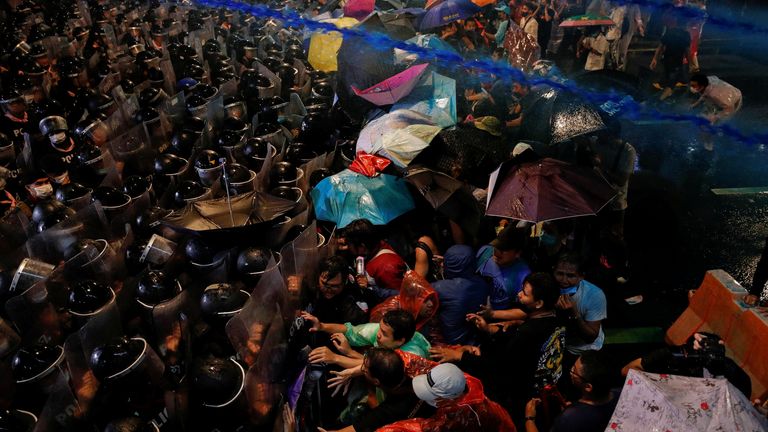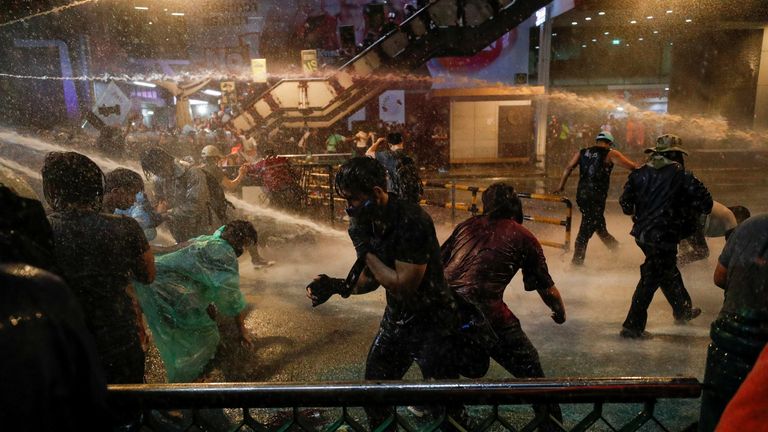Police have deployed water cannon against protesters in Bangkok after a government crackdown on people gathering in public places.
Images from Thailand‘s capital showed officers in riot gear spraying the demonstrators as they shielded themselves using umbrellas.
Police charged at the crowd, scattering protesters who for a second day defied an order not to gather in groups of more than five people.
Thousands of demonstrators rallied in the city in defiance of a strict state of emergency.
The protests, which have intensified this week but have been intermittently taking place over the last three months, are in response to Thailand’s monarchy and its government.
The student-led movement wants reform to the monarchy and the constitution.
The latest row began on Wednesday after activists heckled the royal motorcade, which Queen Suthida was in, by raising their hands with a three-finger salute, that has become a symbol of resistance in the country.
Strict Thai laws ban people from “defaming, insulting or threatening the king, the queen, the heir-apparent or the regent” and anyone breaking the law could face a prison sentence of up to 15 years.
Protests over the last few months have been largely peaceful, with tensions coming to a head on Wednesday after the motorcade incident.
More than 40 people have been arrested and two men are due to be charged with attempted violence against the queen, according to police officials.
During the clash on Friday, demonstrators chanted “get out, get out” to officers.
“The dictatorial government is using violence to disperse the people’s movement,” said Tattep Ruangprapaikitseree, one of the protest leaders.
Another student, who only gave her name as Pin, said: “I have to fight for my future.”
Prime minister Prayuth Chan-ocha has rejected calls for him to step down.
Speaking to reporters after a cabinet meeting, he said the emergency measures would be in force for up to 30 days.
He warned people not to violate them, adding: “Just wait and see…If you do wrong, we will use the law.”
Protesters claim Mr Prayuth, who as army commander led a 2014 coup that toppled an elected government, was returned to power unfairly in last year’s general election because laws were changed to favour a pro-military party.
A spokeswoman for the UN High Commissioner for Human Rights, Ravina Shamdsani, said: “We are particularly concerned about the application of serious charges, including the crime of sedition, against individuals for peacefully exercising their fundamental rights.”
Thai opposition parties have condemned the emergency measures.


